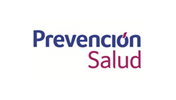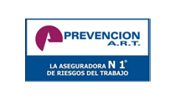Triggers for drug and alcohol use are typically defined as people, places, and things that remind you of your addictive behavior or encourage the use of substances you’re trying to avoid. They don’t have to be direct triggers, like someone offering you the substance. Early sobriety may come with feelings of fatigue, anxiety, or depression. You may also experience sobriety triggers (people, places, and things that trigger the desire to use). Know that it will get easier as you move through treatment and explore why you were using drugs or alcohol in the first place. Building a support network can take time, but the efforts are worth the benefits of having the right people in your life for your sobriety journey.
- Challenges in the process can include intense cravings, relapse, or a return to using the mind-altering substance.
- Toxic relationships are those in which you feel unheard, misunderstood, unsupported, demeaned, unsafe, or attacked.
- Some definitions of sobriety call for complete lifelong abstinence while others focus on developing coping mechanisms that can reduce harm with the understanding that setbacks are common.
- Old habits may include other addictive behaviors or self-destructive actions.
American Addiction Centers (AAC) is committed to delivering original, truthful, accurate, unbiased, and medically current information. We strive to create content that is clear, concise, and easy to understand. If you’d like more information about our programs please select from the list below and we’ll contact you. At a politically fraught time, clarity of the mind is a potent weapon, and the #MeToo movement has also helped give abstinence from alcohol an extra kick. With beer sales sliding for five straight years, according to the Beverage Information Group, global beer brands are exploring alcohol-free as a potential growth area.
Sober Living Homes and Halfway Houses
It also covers tips on how to deal with the challenges you’ll face on your journey to sobriety. Getting support doesn’t have to mean going to rehab, although that is an option. Support can also look like joining in-person and online support groups. One recent study demonstrated the potential benefits of combining in-person and online support methods. If you or a loved one are considering sobriety, you may wonder what it looks like and how to get there. Sobriety can be a particularly challenging pursuit for someone with an addiction like alcohol use disorder.
BetterHelp can connect you to an addiction and mental health counselor. Sober living homes are typically located in secure, serene neighborhoods to provide a stable housing environment. It’s a comfortable, home-like place where you can feel safe and relaxed. There is a wide variety of options available, including apartment style and dorm rooms. Rooms may be individual or shared with a roommate, and common spaces, like the kitchen, living room, and backyard, are shared by everyone living in the home.
How Sober Living Homes Differ From Halfway Houses
Life skills training is often implemented and includes how to manage money, time, motivation, relationships, stress, and other factors more effectively. These skills will enable someone to function well in society when they leave the facility. If you or your loved one needs to go to a sober living facility, contact your local healthcare professional or medical professional for a referral. Given these struggles, men-only homes usually focus on early treatment, mental health support, relapse prevention, and aftercare programs.
If you have participated in an inpatient program or gone to a rehabilitation facility, you may want to consider enrolling in a sober living facility for a minimum of 90 days. While inpatient facilities and rehab are very good at treating the physical addiction, many people find themselves reverting to their old habits the minute they become stressed by every day tasks. A sober living house provides individuals recovering from substance use disorder with a safe place to live before they’re ready to return to their former lives. There are thousands of sober living homes in the U.S., according to the National Association of Recovery Residences (NARR). However, sober living homes differ depending on the residents they accept and the rules they maintain.
Are There Non-12-Step Sober Living Homes?
The option that Sober Living Program in Kerrville Texas homes provide is one that is significantly useful to many in recovery. Generally, those that are staying at a sober living home will remain there for at least 90 days, but stays can be arranged for as long as necessary. According to the National Institute on Drug Abuse (NIDA), between 40 and 60 percent of those undergoing addiction treatment relapse within the first year. However, studies on the effectiveness of sober living communities find that they do indeed help increase the odds for successful long-term sobriety.
Additionally, sober living house rules may include a curfew, helping around the house, and attending group meetings. If you or someone you know has recently quit drinking alcohol and is now sober—congratulations, quitting alcohol can be a long and difficult process. However, you might be wondering what happens now that the detox is over, you’ve completed your stay at an addiction treatment center, and it is time to go home. A sober living house is a peer-managed home designed to help people maintain sobriety.
How Effective Are Sober Living Houses?
Sober living housing is usually located in quiet areas to help ensure a peaceful environment for individuals in early recovery. If you have recently completed addiction treatment and are concerned that your home environment may not be conducive to recovery, a sober home may be an excellent alternative for you. Turning Point of Tampa can recommend options for individuals in the Tampa Bay area. The sober home setting helps residents stay committed to their recovery goals by encouraging participation in support groups while establishing healthy connections with others in recovery. Through this process, residents have the opportunity to better understand and develop coping, communication, and healthy living skills. One study found that mutual support groups can be as effective as 12-step programs and may help improve the odds of success for people who are committed to maintaining a lifetime of total abstinence.
To avoid relapse and remain sober, it’s important to develop healthy relationships. You may also need to change your route to work or home in order to avoid any triggers, or people, places, or things that make you want to use drugs or drink again. Some definitions of sobriety call for complete lifelong abstinence while others focus on developing coping mechanisms that can reduce harm with the understanding that setbacks are common.
Sober Living FAQs
All https://en.forexpamm.info/boston-sober-homes/ homes have a zero-tolerance policy regarding the use of drugs or alcohol. Usually, residents have recently completed inpatient or intensive outpatient treatment for substance use addiction. Sometimes, sober living houses also act as a stand-alone approach for substance misuse problems, meaning that someone will go straight there without first attending a residential treatment center. To live in most recovery residences, you must be abstaining from drug and alcohol use. Some homes will require that you already be sober for a specific period of time.
- However, it is important to know that complete abstinence is a condition of continued residency.
- Residents may also be subject to periodic drug testing to demonstrate ongoing sobriety.
- Sunnyside provides a simple but structured approach to help you drink more mindfully.
- Vasuli Sober Community Practices in house meetings, one on one coaching, SMART Recovery, 12 Step, group outing, fitness, hiking, yoga & meditation.
- Residents are often required to move out after a certain length of time, whether they feel ready or not.
Rather than going to a party or a bar, see a movie, participate in sports. This may also mean that the old friends that are still using or are participating in trigger activities will need to be avoided. The best way forward for your recovery from alcohol or substance use is to incorporate a wide variety of strategies that will help foster success. Remember to care for yourself, seek supportive relationships, and consider seeking help from a therapist.
Halfway houses typically have a time limit on how long residents can stay. Residents are often required to move out after a certain length of time, whether they feel ready or not. Halfway houses also require that all residents either be currently attending substance abuse treatment or have recently completed a program. Sober homes are an especially beneficial option for those without a strong, sober support system at home. For many people with a substance use disorder, it’s simply a matter of never having learned the appropriate way to manage anger.
- However, sober living homes are generally less expensive than inpatient treatment centers.
- Sober living homes don’t require accreditation, a state license or oversight from a behavioral health care provider.
- Read on to learn about what a sober living house is, the history of sober living homes, types, who should go to one, and how you can find a sober living house.
- A sober living house is a peer-managed home designed to help people maintain sobriety.
A therapist can help you learn new coping skills, develop new thinking patterns, and address any co-occurring mental health conditions that may make recovery more difficult. Some of the immediate changes you will need to make will be obvious—like not hanging around the people that you used with or obtained drugs from. After all, you can’t hang around your drug dealer or old drinking buddies and expect to remain sober for very long. If you’ve been in the throes of addictive behaviors for some time, you may be used to chaos and high-stress situations. Getting sober will remove some chaos and stress, but staying sober will require finding a balance between self-care and external responsibilities. If it seems like being sober is all about letting go, bear in mind this doesn’t mean you will be alone.





















































